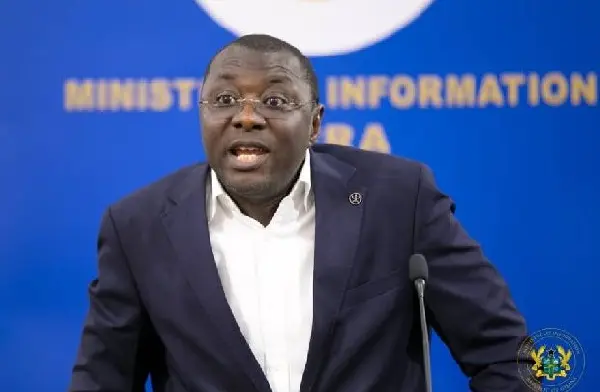In a lecture hall at the University of Professional Studies, Accra (UPSA), the urgency was palpable. Dr. Amin Adam, Ghana’s former Finance Minister, addressed a crowd of students and faculty, his message stark: Ghana is bleeding revenue. The culprit? Illicit financial flows, a complex web of corruption, tax evasion, and illegal trade practices that siphon an estimated $1.4 billion from the nation’s coffers annually. Dr. Adam’s warning underscores a critical challenge: Ghana’s ability to maximize its revenue potential is being undermined by these illicit outflows, and current legal frameworks are simply not equipped to stem the tide. Addressing these illicit financial flows requires immediate and comprehensive action to protect Ghana’s economic future.
The sheer scale of the problem is staggering. This $1.4 billion loss isn’t just an abstract figure; it represents missed opportunities – schools unbuilt, hospitals underequipped, infrastructure projects delayed. These illicit financial flows rob the government of vital resources needed for essential services and development, exacerbating debt and budget deficits and discouraging both domestic and foreign investment, ultimately hindering economic growth. The very stability of Ghana’s financial system, and efforts to promote financial inclusion, are potentially undermined by these activities.
Dr. Adam minced no words about the inadequacy of the existing legal landscape. “National legislation is inadequate to address this canker,” he stated, emphasizing the need for sweeping reforms to unravel the intricate financial networks that facilitate these outflows. Among the most problematic practices are debt loading, where companies artificially inflate debt to reduce taxable income, and cost inflation, where costs are similarly inflated for the same purpose. Aggressive cost recovery techniques are also employed to minimize tax obligations, further eroding Ghana’s revenue base. A recent audit by the Ghana Revenue Authority (GRA) on upstream petroleum taxes revealed the extent of these practices, some of which are now subject to international arbitration.
So, what’s the solution? Plugging these loopholes requires a multi-pronged approach. Strengthening legislation is paramount, with specific reforms needed to address debt loading, cost inflation, and aggressive cost recovery. Enhanced monitoring and enforcement are equally crucial, demanding improved oversight of financial transactions and increased capacity for tax authorities to detect and prosecute illicit financial flows effectively. Furthermore, international cooperation is essential. Collaboration with international organizations and other countries is vital to combat tax evasion and financial mismanagement, particularly in addressing issues through international arbitration, as highlighted by Dr. Adam.
The consequences of inaction are dire. Continued revenue losses will inevitably lead to reduced funding for essential services, increased debt and budget deficits, and hindered economic growth and development. Perhaps most insidiously, it will erode trust in the financial system, undermining confidence and stability. Dr. Adam’s address was more than just a lecture; it was a call to action. He stressed the urgent need for reforms and concerted efforts to plug these loopholes, emphasizing the importance of addressing tax evasion and financial mismanagement head-on.
Ghana stands at a crossroads. Dr. Amin Adam’s stark assessment of illicit financial flows serves as a wake-up call. The estimated $1.4 billion annual loss is not just a statistic; it represents a significant impediment to Ghana’s progress. By strengthening legislation, enhancing monitoring, fostering international cooperation, and tackling these issues head-on, Ghana can maximize its revenue potential and pave the way for sustainable growth and development. The time to act is now, before the drain becomes a hemorrhage.
Image Source: MYJOYONLINE






















